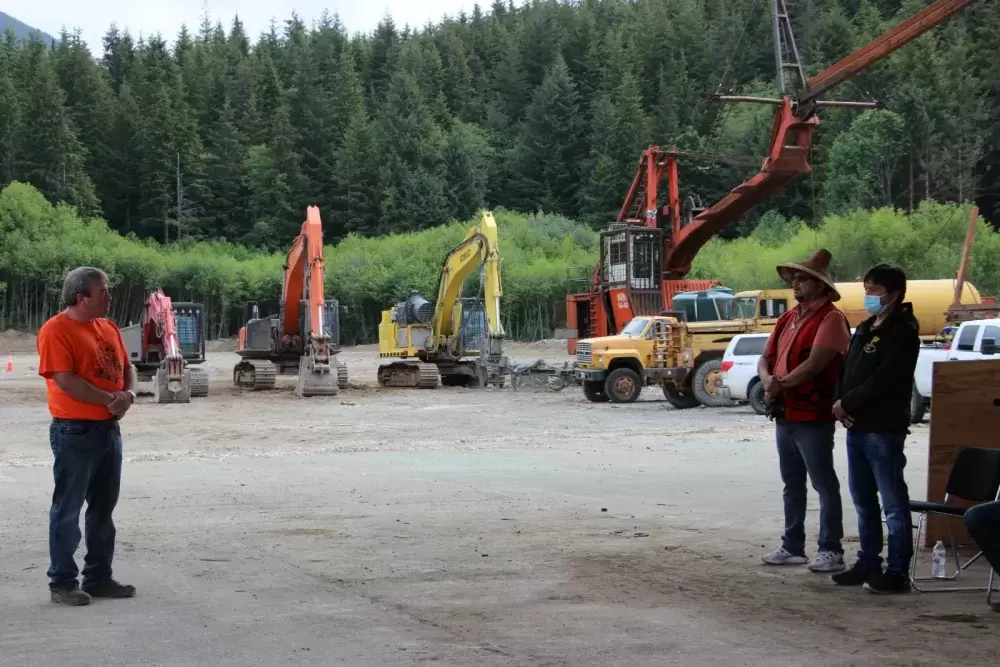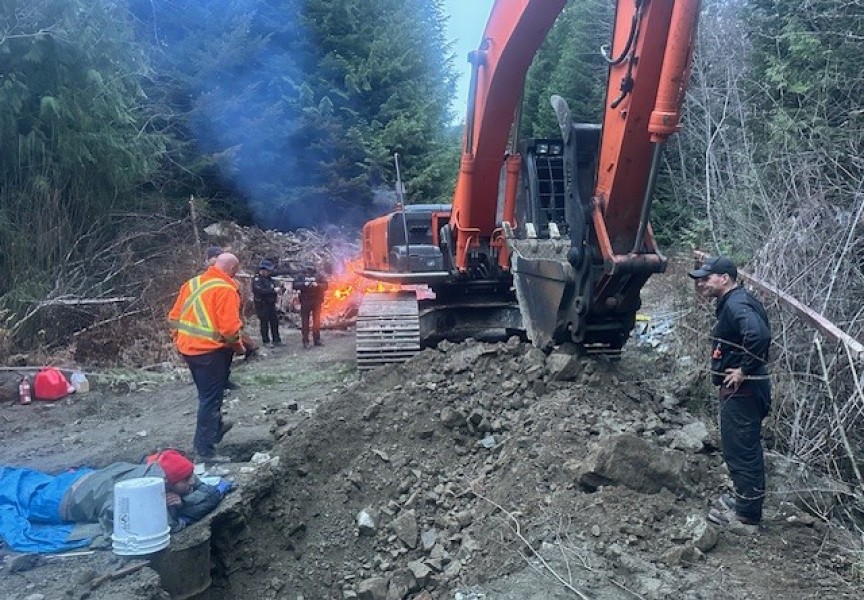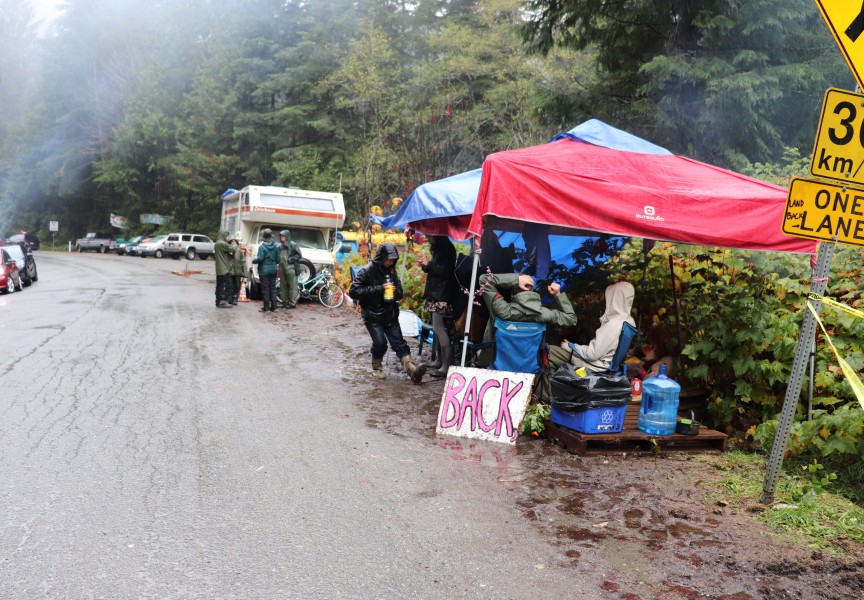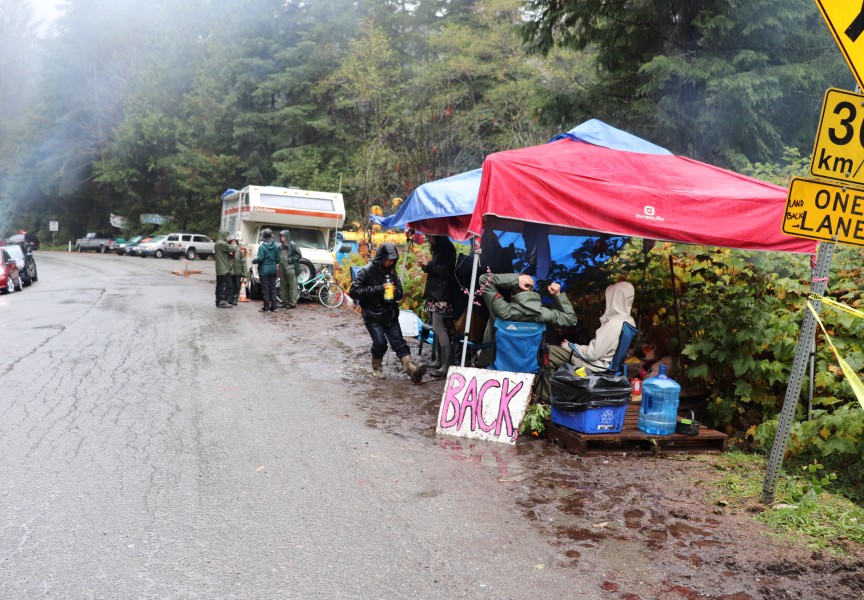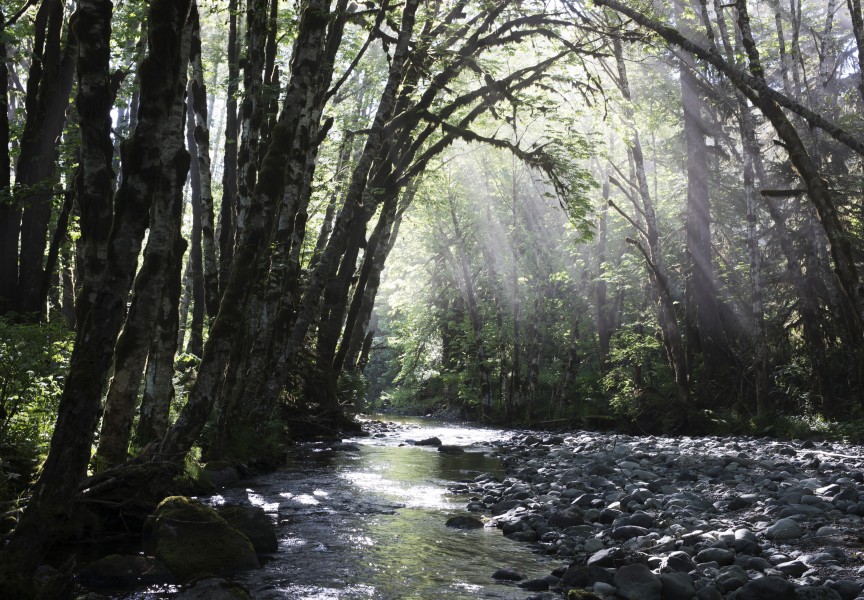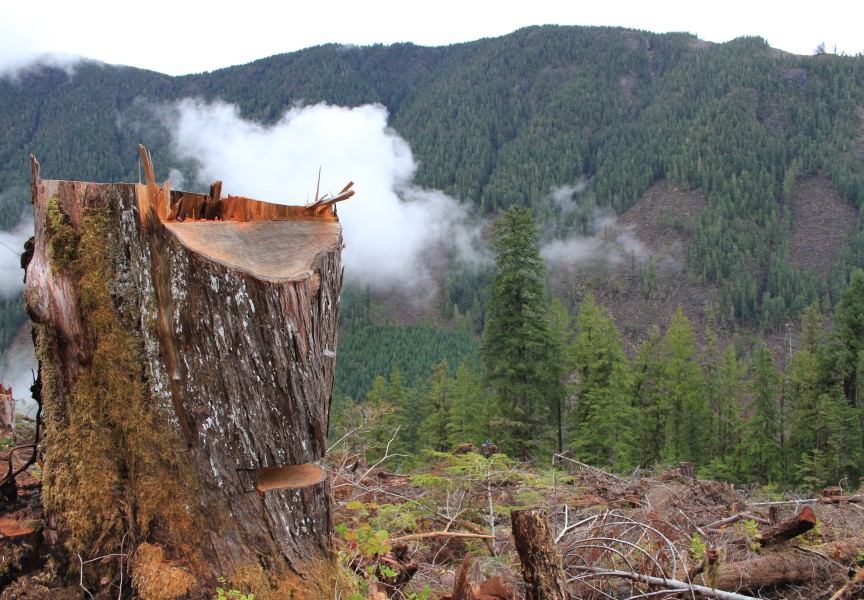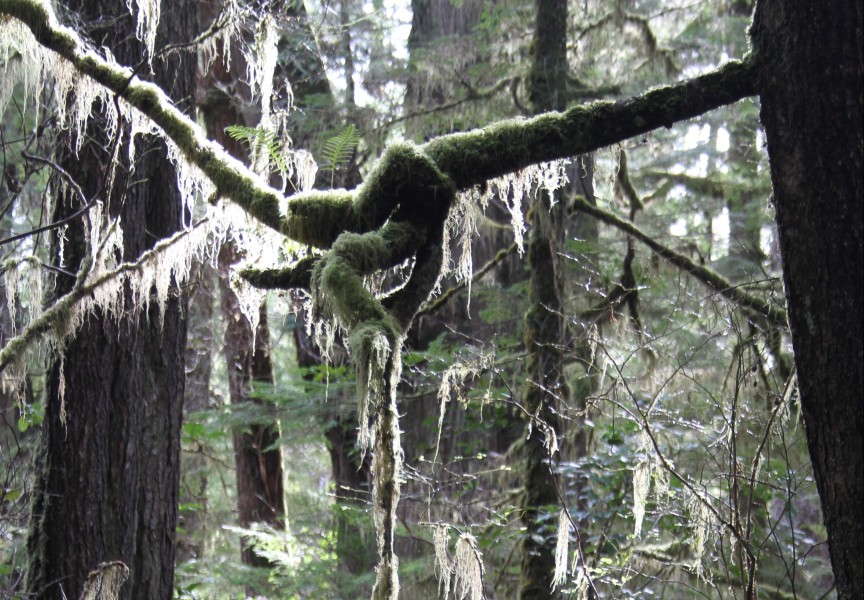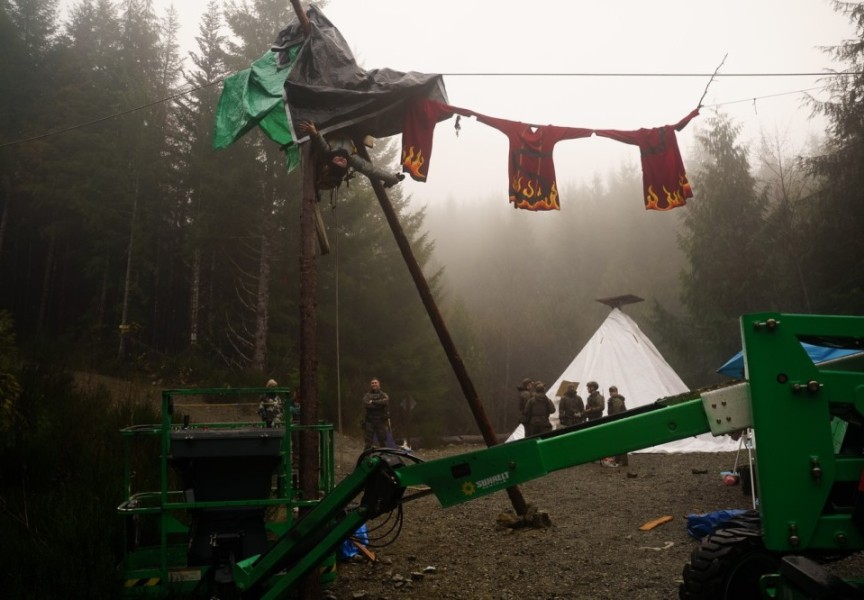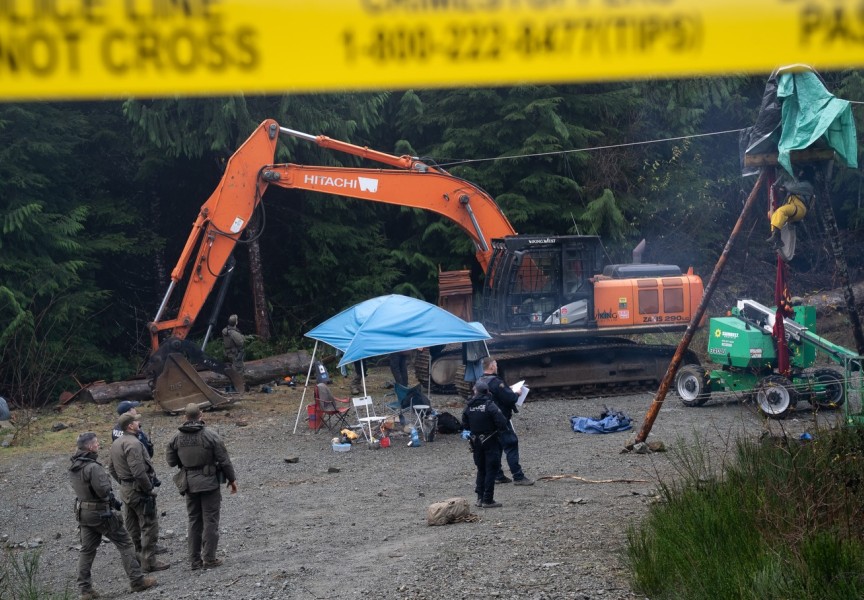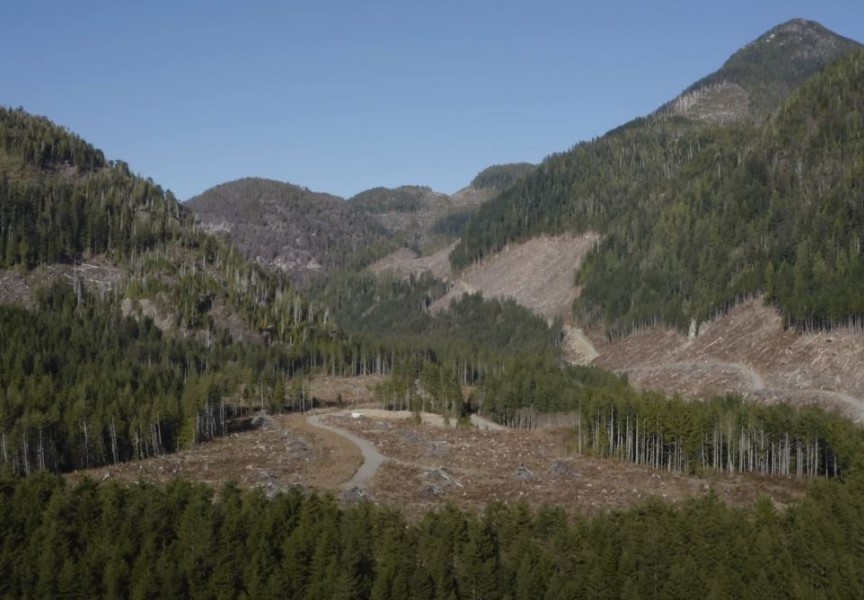Three weeks after tensions with logging protestors erupted into a clash with forestry workers in the Walbran Valley, an apology was made to the Nuu-chah-nulth nations with forestry interests in the region.
On June 4 owners from Island Forest, a contractor operating in Tree Farm Licence 44, ventured to the Ditidaht dry-land log sorting facility to express their regret to the First Nation, as well as the Huu-ay-aht and Pacheedaht.
In early May logging in the Walbran Valley was paused after tensions in the area between protestors and forestry workers became violent. A video shared online shows a group of workers shouting racial slurs at protestors in the area, with a physical confrontation ensuing as the camera is dropped.
The land they were on is managed by TFL 44 LP, a partnership between Huu-ay-aht’s Huumiis Ventures LP and Western Forest Products. No charges were made after the clash, but investigations followed by the companies involved. Huumiis and TFL 44 LP issued a joint statement, saying the “use of racist language, intimidation, and acts of violence have no place in our society or our workplaces, and we have zero tolerance for such behaviour. We are fully supportive of the right to peaceful and legal protest and the obligation of all forest companies, including, TFL 44 LP, to provide a safe work environment.”
At the Ditidaht facility Island Forest co-owner Shawn Nicholson stood up before hereditary and elected leaders from the three Nuu-chah-nulth nations to make amends.
“I’d like to say my deepest apologies to Huu-ay-aht, Pacheedaht and Ditidaht First Nations for some of the actions taken from employees of our company. It’s not what we condone,” said Nicholson on June 4. “We want to make things right.”
“I’d like to say, thank you for coming here. It takes strength, courage and acknowledgement as a human being in taking responsibility of actions of one,” responded Ditidaht Chief Councillor Brian Tate. “We can’t always control the actions of other individuals, but what we can control is conveying messages of behaviours, mannerisms, self control.”
“We can now tell our people that you’ve made an apology,” added Huu-ay-aht Chief Councillor Robert Dennis Sr. “This is one of the most important things in our culture, when you’ve made an apology in this way. It shows that you care.”
“We value working with all three nations in Tree Farm 44,” said Nicholson. “I thank you for allowing us to take this opportunity.”
Jeff Jones, elected chief of the Pacheedaht First Nation, noted that the meeting marked important progress, as the world needs to recognize that First Nations have become a large part of forestry.
“I think that this is a very positive day, it brings us together to discuss the rights and the wrongs,” he said. “It seems like a different era in the forest industry now. Things are changing overall, the respective territories are getting recognized a little more, hereditary chiefs are always present.”
Tate noted that the apology followed traditional protocol, showing that Island Forest displayed respect for the First Nation’s law.
“This is our legal system here, amongst our people. This is a very important portion of our lives in how we’re structured,” said Tate. “From this day forward, from those of us here, this issue is now cleared. We’ve accepted your apology…We look forward to working with you in the future.”
The surge in activism on logging roads in southern Vancouver Island has forced First Nations with forestry interests to take measures to control conduct in their territories. On May 10 the Huu-ay-aht set up a check point at the entrance to their ḥahuułi to control disruptions, informing visitors that they must follow the First Nation’s three sacred principles: ʔiisaak (Utmost Respect), ʔuuʔałuk (Taking Care of), and Hišuk ma c̕awak (Everything is Connected).
As Island Forest continues to operate in the area, Nicholson admitted that the ongoing protest activity has put his employees in a tough position.
“It’s not special training we have, we don’t encounter this on a regular basis,” he said of the protestors. “They’re going too far, they’re putting spikes in trees and cutting up helipads, they’re making it dangerous for the worker to go out there, and they don’t care about the worker, and that’s what’s sad.”
On Wednesday, June 9 the province agreed to a notice from the Pacheedaht, Ditidaht and Huu-ay-aht for a two-year deferral on old-growth logging the Fairy Creek watershed and Central Walbran, allowing the First Nations to undertake stewardship management plans with their citizens.
Fearing that other old-growth areas are at still at risk, the Rainforest Flying Squad has pledged to uphold a presence in the south island.
“Large-scale logging could still occur in old-growth forest directly adjacent to Fairy Creek, and in parts of the Central Walbran not included in the deferral,” reads a statement from the activist group. “Because of this, the Rainforest Flying Squad protesters will remain in place and will consult with Pacheedaht Elder Bill Jones on next steps.”
“The announcement today is a promising start to protecting old-growth forests in British Columbia,” said Saul Arbess, a member of Rainforest Flying Squad. “It’s a welcome change to see the province responding to this request from First Nations, and giving them the time to develop a plan that works for them.”
But Tate has recently been troubled by the visitors to his nation’s territory, who came without asking permission from hereditary leaders. HeA recent helicopter ride over Ditidaht land revealed encampments and portable toilets. He’s also concerned about visitors speaking on behalf of his First Nation.
“We are not tolerating any more third-party interest coming in without permission and doing as they please in our traditional territory and disrespecting the land, us and our hereditary system,” he said. “I’m not a fan of the protestors right now, because of their behaviour and actions and how they are portraying themselves with half truths. I have asked the RCMP and anybody else that speaks to them to keep Ditidaht First Nations’ name out of their mouth when they have a talk with the reporters, because they don’t represent us…And any other First Nation individual that joins the protest, they do not represent us.”

